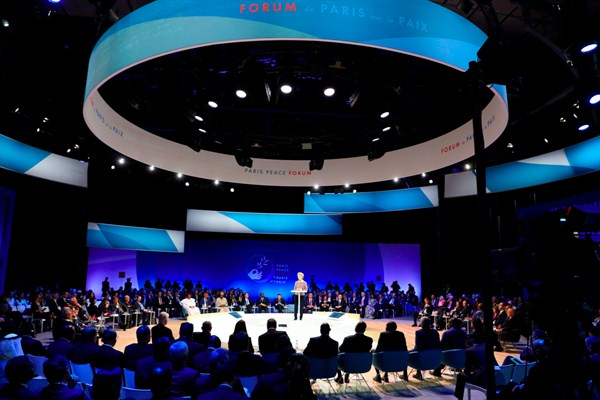This time last year, on the centenary of the armistice that ended World War I, French President Emmanuel Macron welcomed 65 heads of state and government, 10 leaders of international organizations, and some 6,000 other participants to the inaugural Paris Peace Forum. The summit had a lofty goal, according to its mission: to generate support for international cooperation and collective action at a time when “countries are turning inward.” The global political context was inauspicious, and it turned out that the timing was too, as the divide between President Donald Trump and America’s European allies was on full display during Trump’s visit to France for the centennial commemorations. Trump was boarding a flight back to Washington as the forum began.
This year’s redux of the Paris Peace Forum, which opened Monday and runs through Nov. 13, could prove to be even more incongruous. More Western policymakers find themselves wedged between conspicuous nationalist sentiment at home and a fragmenting geopolitical landscape abroad. In the absence of high-level political support for multilateral engagement, the attendees in Paris are instead turning to alternative arrangements for international cooperation to address everything from climate change to new technologies.
Macron launched the Paris Peace Forum as an antidote to the current crisis of liberal internationalism, as the various multilateral institutions set up after World War II have stalled or atrophied in their roles as problem-solving bodies. Populist backlashes against globalization and resurgent great-power competition, along with faltering U.S. hegemony and Trump’s “America First” presidency, have left the international system sputtering, putting its ability to ensure global security and prosperity in doubt.

